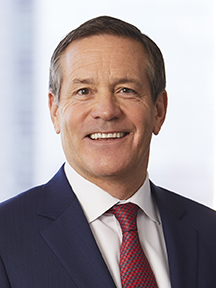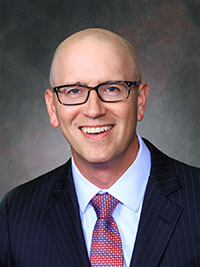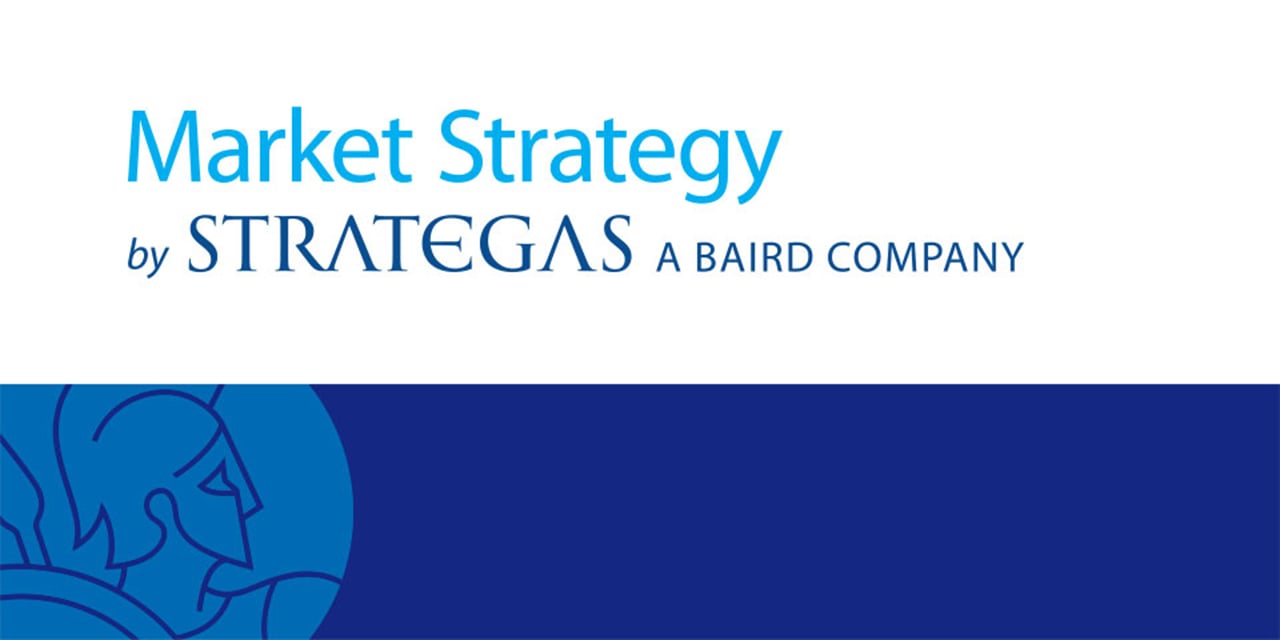
ESG Under the Microscope
One of the buzziest acronyms in the investing world is "ESG." These three letters are a tidy summary of a big-picture idea: That it’s possible to "do good and do well" by investing in your values. While ESG focuses on environmental, social and governance themes, there are several other schools of thought on values-driven investing. These approaches, arguably led by ESG, have become more mainstream over the past few years. Many people and institutions are eager to incorporate "responsible" investing into their portfolios.
More recently, ESG investing has come onto the radar of regulators and industry oversight bodies. What’s happening, and why is it coming up now? John Taft, Vice Chairman of Baird, is very involved in the firm’s ESG initiatives and has frequently written on the topic. He recently caught up with Chris Merker, Ph.D., a Baird Financial Advisor, adjunct professor at Marquette University and member of the CFA Institute’s ESG Working Group. The duo chatted about recent developments in the ESG world and what investors should know.
John Taft
Chris, I’m so glad to be talking to you, and what a time to be connecting – there’s so much going on in the world of ESG investing right now. It certainly seems ESG is approaching an inflection point. Now more than ever before, people feel a sense of peril about societal crises. Climate change, social inequality, global hunger, you name it – people are waking up and accepting these issues are real and urgent. In cases where policymakers haven’t acted on these issues, people are finding ways to take action themselves. ESG gives individuals, institutions and the asset managers that serve them a path to effecting change.
While there’s a lot of energy and interest in ESG investing, one thing missing is rigor. The industry needs to develop better metrics and consistent standards for evaluating companies and organizations along dimensions of "responsible" behavior.
Chris Merker
That’s very true. ESG needs stronger, more uniform standards around disclosure and product categorization. According to research firm Cerulli, nearly 90% of equity investment managers claim to be integrating ESG into their work, but only about 4% are making any kind of disclosure in their prospectuses regarding their ESG process. Investors need better visibility on this front.
John Taft
There are actually dueling ESG standards out in the market right now. There isn’t the same consistency that exists with globally accepted accounting principles, for example. The good news is that the industry is starting to coordinate its efforts, and there are a couple of groups collaborating and working hard to create a common regulatory framework.
Chris Merker
Everyone is pushing for a global standard or harmonization of the standards frameworks that exist today. 2020 has really been the year of "standards" for ESG. In late September, the World Economic Forum partnered with the “Big Four” accounting firms (KPMG, PwC, Deloitte, and EY) and came out with their version of an ESG standards framework for issuer disclosure.
In addition to creating standards for institutions that offer ESG investments, other groups are working to create standards to help investors understand and vet ESG strategies. The CFA Institute is doing a lot of work on this front. I sit on its ESG Working Group, which is an international committee tasked with defining the requirements for the CFA Institute’s forthcoming ESG industry standard. We released a consultation paper for industry and public comments in mid-August. The comment period closed this fall, and our workgroup is reviewing that feedback so the CFA Institute can continue to refine the guidelines. The hope is to release a final set of standards late next spring or so.
John Taft
The energy around this is impressive and important. Better standards will ultimately benefit investors. Standardized disclosures, product categories and the like give them the information they need to make a call on whether ESG is a fit for them – and, help them determine whether an investment really, truly aligns with their values.
This is coming at a fortuitous time, too. With the U.S. election just now behind us, I think we can expect a renewed focus on regulation in the finance industry. You think of initiatives like the Department of Labor’s 2020 proposal that would essentially limit ESG investments in some retirement plans. Improved standards could certainly impact how that unfolds.
Chris Merker
I see other notable opportunities in the future, too. The energy around ESG investing – and, more broadly, using investing as a way to make an impact in the real world – is driving real change. Take climate change, for example. Some companies are stepping up and creating their own carbon reduction targets without a government mandate. Amazon recently committed to going carbon neutral by 2040 – an impressive goal given, as some have speculated, the company may produce more emissions than Exxon.
People are starting to demand corporate citizenship, which is starting to change how companies act. Corporations are also committing to stakeholder issues. The seminal example is the Business Roundtable, which released a statement just over a year ago about balancing the needs of multiple constituencies – employees, customers, clients, suppliers, host communities – not just shareholders. As these topics become more and more mainstream, investment managers and investors should have more transparency into ESG ratings. With more visibility, investment managers and investors will be better able to weigh whether ESG is a fit for their portfolio – as well as a broader scope for managing risk and return in their investments.
John Taft
I very much agree, Chris, particularly with your last point. I think having ESG as an investing option is a positive for individual and institutions. Helping them align their values with their investments could create as much – if not more – impact on the major challenges facing society than government legislation. Doing the hard work to better define ESG industry standards is a tide that will lift many boats.

About John Taft
John Taft is Vice Chairman of Baird and a member of the firm's Executive Committee. John's focus is on advancing strategic opportunities across Baird's platform, including the continued expansion of Baird's Private Wealth Management business. Prior to joining Baird, he served as CEO of RBC Wealth Management, a full-service brokerage firm with nearly 2,000 financial advisors and over $280 billion in assets, for more than 10 years (2005-2016). John's other past roles include president and CEO of Voyageur Asset Management; president and CEO of Dougherty Summit Securities; a member of the board of directors of Segall Bryant & Hamill, The Clifton Group and Columbia Threadneedle Funds; and a managing director at Piper, Jaffray & Hopwood.
John is a frequent public speaker and media contributor, and has authored two books, "Stewardship: Lessons Learned from the Lost Culture of Wall Street" and "A Force for Good: How Enlightened Finance Can Restore Faith in Capitalism." He graduated magna cum laude, Phi Beta Kappa with a Bachelor of Arts degree from Yale University, and earned a master's degree in public and private management from the Yale School of Organization and Management. As a member of the board of directors and as a volunteer, he has served a wide range of not-for-profit and public service organizations. Currently he is an active member of the Itasca Project, and serves on the boards of The Minneapolis Foundation and The Andy Warhol Foundation for the Visual Arts.

About Christopher Merker
Christopher K. Merker, Ph.D., CFA, is a director with Private Asset Management at Baird. He holds a Ph.D. in investment governance and fiduciary effectiveness from Marquette University, where he has taught the course "Sustainable Finance" since 2009. Executive director of Fund Governance Analytics (FGA), an ESG research partnership with Marquette University, he is a member of the CFA Institute ESG Working Group, an international committee currently exploring ESG standards, publishes the blog, Sustainable Finance, which covers current topics around governance and sustainability in investing, and is co-author of the book, The Trustee Governance Guide: The Five Imperatives of 21st Century Investing.
The information offered is provided to you for informational purposes only. Robert W. Baird & Co. Incorporated is not a legal or tax services provider and you are strongly encouraged to seek the advice of the appropriate professional advisors before taking any action. The information reflected on this page are Baird expert opinions today and are subject to change. The information provided here has not taken into consideration the investment goals or needs of any specific investor and investors should not make any investment decisions based solely on this information. Past performance is not a guarantee of future results. All investments have some level of risk, and investors have different time horizons, goals and risk tolerances, so speak to your Baird Financial Advisor before taking action.


